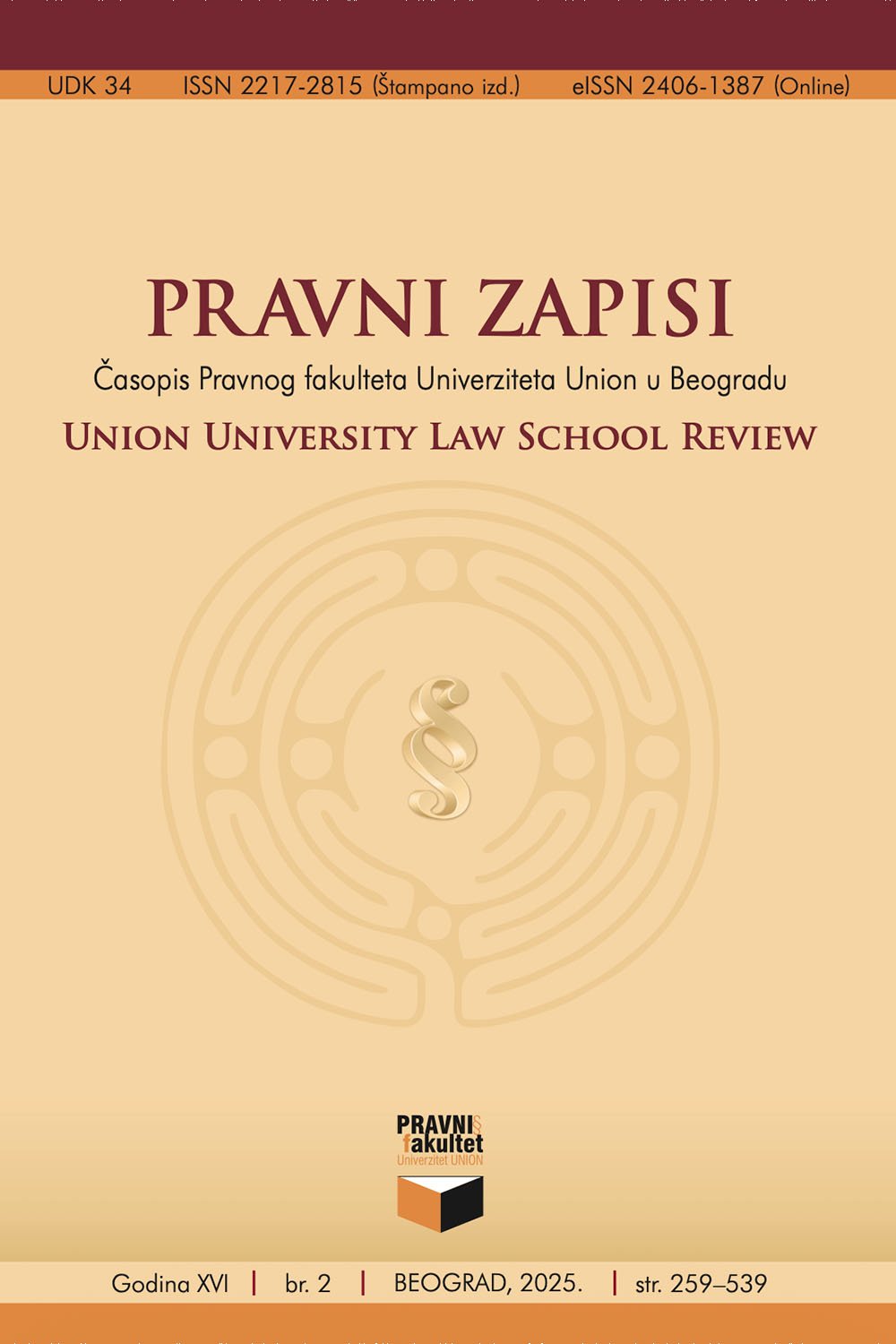PRAVNI ZAPISI • Year XV • No. 2 • pp. 430–465
REFLECTIONS ABOUT THE SAMENESS OF HUMAN RIGHTS ONLINE AND OFFLINE

English
Vesna Crnić Grotić,
Professor, University of Rijeka Faculty of Law, Rijeka;
e-mail: vesna.crnic.grotic@pravri.uniri.hr
ORCID ID: 0000-0002-8497-9599
Šejla Maslo Čerkić
Lecturer and Legal Officer
Organisation for Security and Co-operation in Europe
Džemal Bijedić University Faculty of Law Mostar
e-mail: sejla.maslo.cerkic@gmail.com
ORCID ID: 0009-0004-6065-1558
Vygantė Milašiūtė
Associate Professor, Vilnius University Faculty of Law, Vilnius;
e-mail: vygante.milasiute@tf.vu.lt
ORCID ID: 0000-0002-2687-5812
Tiina Pajuste
Professor, Tallinn University, Tallinn
e-mail: t.pajuste@gmail.com
ORCID ID: 0000-0001-8205-7585
Mart Susi, Professor
Tallinn University, Tallinn
e-mail: martsusi@tlu.ee
ORCID ID: 0000-0002-2624-4797
Pravni zapisi, No. 2/2024, pp. 430–465
Review Article
DOI: 10.5937/pravzap15-52535
KEY WORDS
Sameness of Rights, Right to Privacy, Right to Education, Freedom of Expression, Right to be Forgotten, Freedom from Discrimination, Non-coherence Theory of Digital Human Rights.
ABSTRACT
The article explores whether and how the concept of the sameness of human rights online and offline can be justified. The comparative method analyzes changes in the meaning and scope of four human rights when transposed from the nondigital to the digital domain: the right to education, nondiscrimination, freedom of expression, and privacy (emphasizing the right to be forgotten). These rights are examined through shifts in meaning, related state duties, and the role of private actors. The theoretical framework is the non-coherence theory of digital human rights, which asserts that online and offline human rights align only at a general level. As the scope and meaning of rights become more specific, they diverge, though the abstract concept of sameness remains. This generic feature of human rights supports the argument that they are domain-independent.

